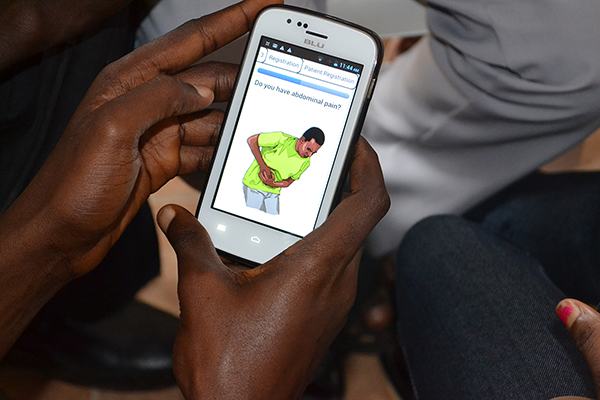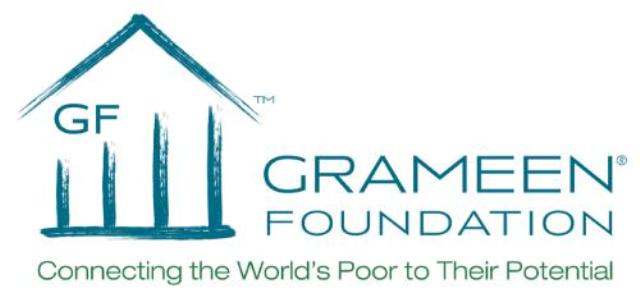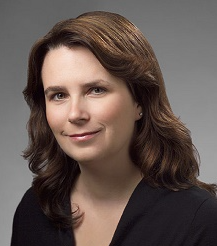community health workers
See the following -
'Virtual Doctors' Helping Patients in Zambia
The idea of a "virtual doctor" project might sound rather futuristic. But the inspiration for this scheme to improve health services in Zambia began in very low-tech and unhappy circumstances. Huw Jones, working in Zambia as a safari guide, was driving a Land Rover along a road in a remote part of the country. He saw a trail of blood in the road, and his first reaction was that it might have come from an animal killed by a lion. But he came across a couple on a bike - the man riding and the woman carried on the handlebars. She was pregnant and bleeding heavily and they had been cycling for hours with the aim of reaching the nearest hospital, almost 60 miles away...
- Login to post comments
Hesperian Health Guides Releases Open Copyright Apps
 Hesperian Health Guides released the Android version of their Safe Pregnancy and Childbirth app Friday, completing the new suite of free digital tools Hesperian made available in late February. These new digital tools, which were developed by Hesperian in partnership with The UnaMesa Association, are designed to provide community health workers worldwide with quick medical references and source content for training. The new digital tools suite consists of the Pregnancy and Safe Childbirth Application, a searchable HealthWiki, and an online image library. Read More »
Hesperian Health Guides released the Android version of their Safe Pregnancy and Childbirth app Friday, completing the new suite of free digital tools Hesperian made available in late February. These new digital tools, which were developed by Hesperian in partnership with The UnaMesa Association, are designed to provide community health workers worldwide with quick medical references and source content for training. The new digital tools suite consists of the Pregnancy and Safe Childbirth Application, a searchable HealthWiki, and an online image library. Read More »
- Login to post comments
How Open Source Mobile Health Technology Aided Ebola Response
 When the Ebola epidemic spread across West Africa in early 2014, organizations around the world sent thousands of health workers to combat the outbreak alongside local medical personnel and volunteers. Over the past two years, many of these teams have seen the benefits of using mobile health technology for disaster response. Some of the most important tasks in responding to a healthcare disaster are collecting, analyzing, sharing and acting upon data gleaned from patients. That was one job of Partners in Health (PIH), a nonprofit based in Boston, which worked in the affected countries to train medical staff, provide patient care, and survey patients and their families.
When the Ebola epidemic spread across West Africa in early 2014, organizations around the world sent thousands of health workers to combat the outbreak alongside local medical personnel and volunteers. Over the past two years, many of these teams have seen the benefits of using mobile health technology for disaster response. Some of the most important tasks in responding to a healthcare disaster are collecting, analyzing, sharing and acting upon data gleaned from patients. That was one job of Partners in Health (PIH), a nonprofit based in Boston, which worked in the affected countries to train medical staff, provide patient care, and survey patients and their families.
- Login to post comments
In Guatemala, Shifts in Health Care Strand Communities
...Downloaded on the phone was an open-source app, Kawok, that allowed the community health workers to create patient profiles and access educational videos and best-practice protocols. They had direct lines to a doctor who worked for TulaSalud, whom they could call any time of day or night in an emergency, and the numbers of auxiliary nurses at nearby health centers. The idea was to create a network of professionals, resources and emergency services that community health workers could reach at the touch of a button. “Anytime I could call and ask for help, and they gave it to me,” says Pop Pop. “It was a really useful tool.”...
- Login to post comments
Nationwide Launch of Mobile Health Program in Rural India Signals New Era of mHealth for Emerging Economies
 Today, the Government of India launched a nationwide mobile health program designed to train community health workers and to directly reach millions of women within three years. The program is powered by MOTECH, a robust yet simple-to-use mobile health (mHealth) technology developed by Grameen Foundation, with support from the Bill & Melinda Gates Foundation. "Until now, mHealth applications have been relatively small and siloed," said John Tippett, Global Director of Mobile Health at Grameen Foundation. "By allowing systems to work together and serve huge numbers of people, MOTECH opens a new era for tackling global health problems at scale through mobile technology."
Today, the Government of India launched a nationwide mobile health program designed to train community health workers and to directly reach millions of women within three years. The program is powered by MOTECH, a robust yet simple-to-use mobile health (mHealth) technology developed by Grameen Foundation, with support from the Bill & Melinda Gates Foundation. "Until now, mHealth applications have been relatively small and siloed," said John Tippett, Global Director of Mobile Health at Grameen Foundation. "By allowing systems to work together and serve huge numbers of people, MOTECH opens a new era for tackling global health problems at scale through mobile technology."
- Login to post comments
Open Medical Records Community Supports New System In Mozambique
 The southern African country of Mozambique suffers under the most extreme challenges for resource-poor countries: economic instability, political strife, civil unrest, corruption and crime, unreliable infrastructure (such as transportation and telecommunications), and a large-scale HIV epidemic that has yet to be declared under control...The nation has enormous need and opportunity for improving its healthcare system and the lives of its residents. In the face of their crisis, Mozambique is working to equip its medical clinics across the nation with an electronic medical records system (EMR). Mozambique believes an EMR can empower clinicians to give high-quality and consistent care to those most in need, while allowing the country to reap the insights of comprehensive reporting for responsive public health decision making...
The southern African country of Mozambique suffers under the most extreme challenges for resource-poor countries: economic instability, political strife, civil unrest, corruption and crime, unreliable infrastructure (such as transportation and telecommunications), and a large-scale HIV epidemic that has yet to be declared under control...The nation has enormous need and opportunity for improving its healthcare system and the lives of its residents. In the face of their crisis, Mozambique is working to equip its medical clinics across the nation with an electronic medical records system (EMR). Mozambique believes an EMR can empower clinicians to give high-quality and consistent care to those most in need, while allowing the country to reap the insights of comprehensive reporting for responsive public health decision making...
- Login to post comments
TulaSalud: An m-health System for Maternal and Infant Mortality Reduction in Guatemala
The Guatemalan NGO (Non-Governmental Organization) TulaSalud has implemented an m-health project in the Department of Alta Verapaz. This Department has 1.2 million inhabitants (78% living in rural areas and 89% from indigenous communities) and in 2012, had a maternal mortality rate of 273 for every 100,000 live births. This m-health initiative is based on the provision of a cell phone to community facilitators (CFs). The CFs are volunteers in rural communities who perform health prevention, promotion and care. Thanks to the cell phone, the CFs have become tele-CFs who able to carry out consultations when they have questions; send full epidemiological and clinical information related to the cases they attend to; receive continuous training; and perform activities for the prevention and promotion of community health through distance learning sessions in the Q’eqchí and/or Poqomchi’ languages...
- Login to post comments